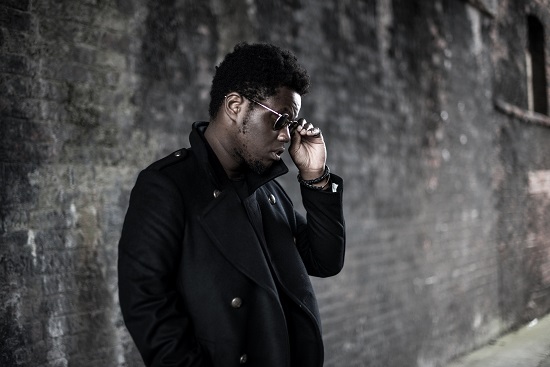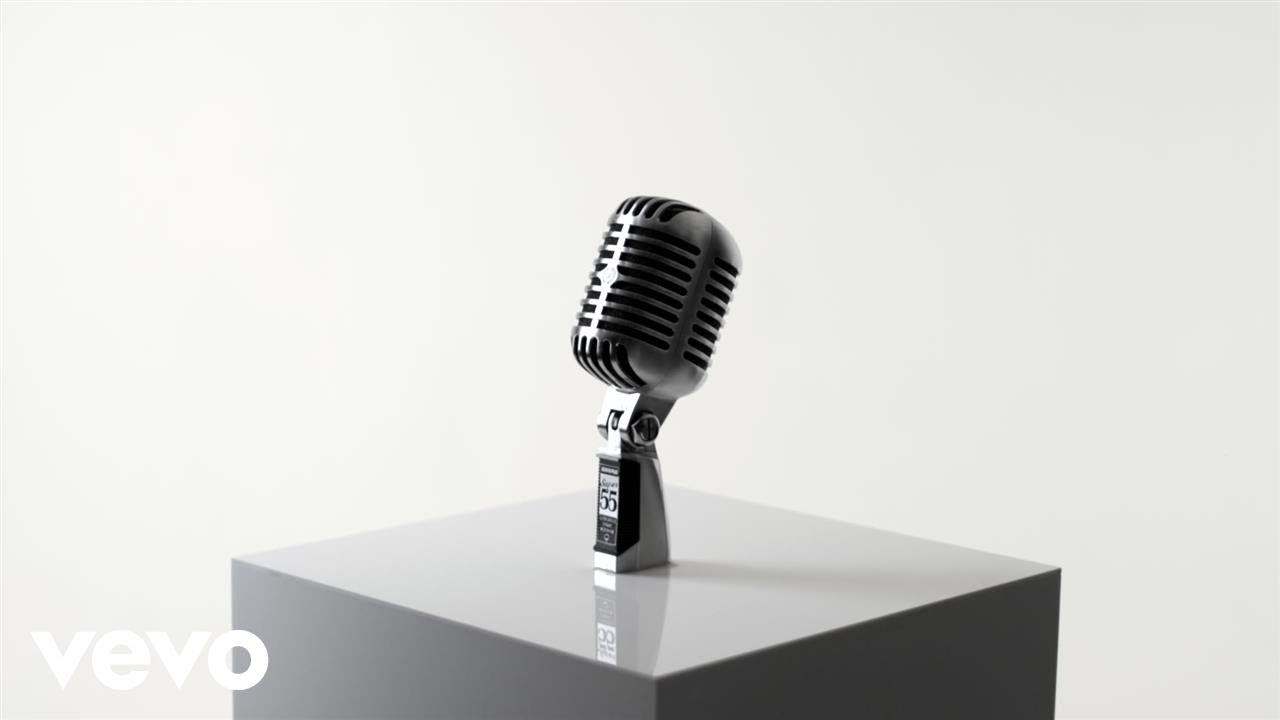"My vision of success is an unbiased opinion from person A to person B," says Sam Folorunsho, better known as the formidable, fast-rising XamVolo. "At the moment person A is always just talking to me, telling me it’s great to keep going. I want someone to say it was good, or I didn’t quite like it, to someone else. That means it’s part of culture, it’s worth conversing over and it’s had enough of an impact to be considered seriously."
We’re speaking at Brighton’s Great Escape Festival, one of Britain’s biggest showcases for new music. The line-up is replete with guitar bands, plenty of whom draw a large crowd, but the London-born, now Liverpool-based neo-soul polymath’s packed set upstairs at the Prince Albert pub sees punters and industry heads alike craning their necks through the doorway to catch a glimpse at his set. His music is anchored by his powerhouse of a vocal, a voice which has the ability to take you by surprise again and again, even when you thought it had no levels left to climb, but also comes replete with a cornucopia of instrumental flourishes. There are plenty of great neo-soul singers in Britain at the moment, but few have such drive as songwriters. A commanding, titanic presence onstage, yet considered and easygoing in person to a queue of those wanting to speak to him afterwards, it’s fair to say his name is on the lips of persons A, B, C and beyond; this, more than most at the festival, is worth conversing over.
I first encountered the musician when we were students together in Liverpool a few years ago, he studying architecture. He was quiet and poised, revealing little of the tremendous ambition that only now is beginning to be realised. It took a few months of knowing him until I was aware he even made music at all, after inquiring as to the auteur of a quite tremendous Soundcloud EP having been played it by a friend. I was surprised he’d never mentioned it. "Imagine if you were running around telling everyone ‘hey, I’m a musician,’" he explains. "I was quiet only because, what do I say? The vibe I got from most people was not to take anything too seriously. If I’m not going to be able to talk about ambition with people, I’m just going to be quiet. When I have something to back it up, you’re damn sure I’m gonna come out and be like that.
"I’m at a point now where if people ask me what I do, I can tell them I’m a musician without them saying [patronisingly] ‘Oh, good for you!’" he continues. Working with Decca Records, having been signed to their parent company Universal last year, it was something of a landmark in justifying both risky decisions and a whole lot of hard work. When he moved to Liverpool from London, as a talented student he’d been expected to follow academia; his musical output by that point took the form of a collection of bedroom recordings made on a borrowed Macbook. "Before I was moving to Liverpool I just googled ‘Liverpool music scene’. Esco Williams came up, the GIT Award came up, and I thought, ‘well, cool, I’m probably never gonna reach that point but I’ll go anyway,’" he says. "By my second year I didn’t care about architecture at all. With music and with architecture you need 100% of your attention on one or the other, and I chose the risky one."
It was not until he was signed that his parents came round to supporting his risks. "My mum is a traditional person, she wanted to see financial gain. Now she sees job fulfilment too. My dad didn’t even know I did music at all until I got signed." None of this is to say there wasn’t an intent to XamVolo’s output from the beginning; though he didn’t yet have the evidence to back his self-belief in public, the intent, it seems, was always there. "As corny as it sounds, when I first started I wrote a mandate on a piece of paper, what I wanted. I hid that shit because if anyone found it my life was fucking over, like some teenage drama. But I wrote that down, I needed to at least give it a go." The newfound legitimacy that comes with a record deal ‘is insecurity on my part’, he says, "but now I have a dog in the fight. Before I said ‘I’m a musician’ tentatively, but now I can talk to other people and say yes, really. I see it as a confirmation that it was a good risk to take."
Speaking of risks, when it comes to XamVolo’s debut LP, the stakes remain huge. Throughout our interview he refers to it as a ‘project’, not an album, and speaks of his focus on all aspects of it, from the live show to ‘the peripheral things’; marketing for example. Off the back of a host of stellar singles racking up plays in the hundreds of thousands and places on streaming services’ increasingly influential tastemaking playlists, his debut is to be a concept album. It’s a bold move for an artist in his nascent stages, but Decca, he says, were supportive. "It would never happen for an artist of my genre. It’s a talking point. If I was a guitar-wielding guy it would be like ‘oh here we go, someone trying to make another Dark Side Of The Moon, but because the genre is so different it’s like ‘what would that actually sound like?’"
As for the concept itself, the artist says he wants to remain tight-lipped until the album’s fully realised. The cryptic clip that accompanies the audio posting for ‘Old Soul’, of a vintage microphone slowly being drenched in opaque, black liquid, is a visual clue, he says, "but I’ll delve into all that later. I will say it deals a lot with desire, a lot with power, a lot with being conscious of what you want and why you want it." He reveals too that his approach to different collaborators comes with a layered meaning, being ‘under the influence’ of another creative force akin to the power of alcohol or a drug. "I’ll use a specific symptom because I collaborated with a person, then the others when I’m clear-headed and ‘sober’ it’s my own production. It’s all a very simple-minded, focused aesthetic."
However, he says, "if the concept flew over your head, you wouldn’t notice. I understand the way that authors approach their first book is that you can never end it with a cliffhanger, because there’s no promise of a second. For example, ‘Old Soul’ exists by itself, but ‘Old Soul’ technically is ‘all’s well in the world of this guy, until…’ That kind of thing where the song can exist by itself and exist in the world as well. I want people to uncover it by themselves. If it was up to me I’d write a dissertation on it, but I know that’s a bit swotty. I want people to create their own meaning around it. If people ask me about it and have had time to create their own impression I might go in and say ‘well did you know track seven in reverse is also track two multiplied by track three?’"
He alludes often to his desire to extend this conceptual approach to the live set. His shows at present are not to be sniffed at aesthetically, with all on stage clad entirely in black and the singer at their helm donning dark, rounded shades for all live appearances. At The Great Escape, where among a sea of similar hopefuls any large-scale visual decorations are an impossibility, their set is one of the most visually striking. "Aesthetically I want to do some madness but I’ve got to work towards that. You know how it is in this day and age, no one’s buying physicals. I don’t know how hard it is to get a big ass massive rig on stage…"
Its notable that when I ask what he’d dream up were money no object, the singer starts beaming. "It would be mad, man. So mad…" he says, looking past me into the distance while he ponders the possibilities. He arrives at his conclusion. "I’d rent out a cathedral and sound treat it, it would be multi-chambered. We’d have big ass props, so many props, and a full brass section, the sonic level has to be exquisite. If money was no object I’d get the absolute, perfect listening experience, it’d be like nothing you’ve ever heard."
Does he ever, I ask, look backwards? To the days of keeping work between only himself and a borrowed Macbook, before his talents were taken on by the industry machine? "Sometimes I’m very glad I put the time in when everyone else was watching football. I spent all my time on music and I’m glad I did because it’s starting to pay off. I’m grateful that things are going well, I did work hard, it correlates somewhat, it doesn’t have to go the way that you put in what you get out, but you know I’m trying my best to be the hardest working dude so at least if it goes wrong it isn’t my fault. If it was my fault I couldn’t live with myself. Regrets? Not yet."



